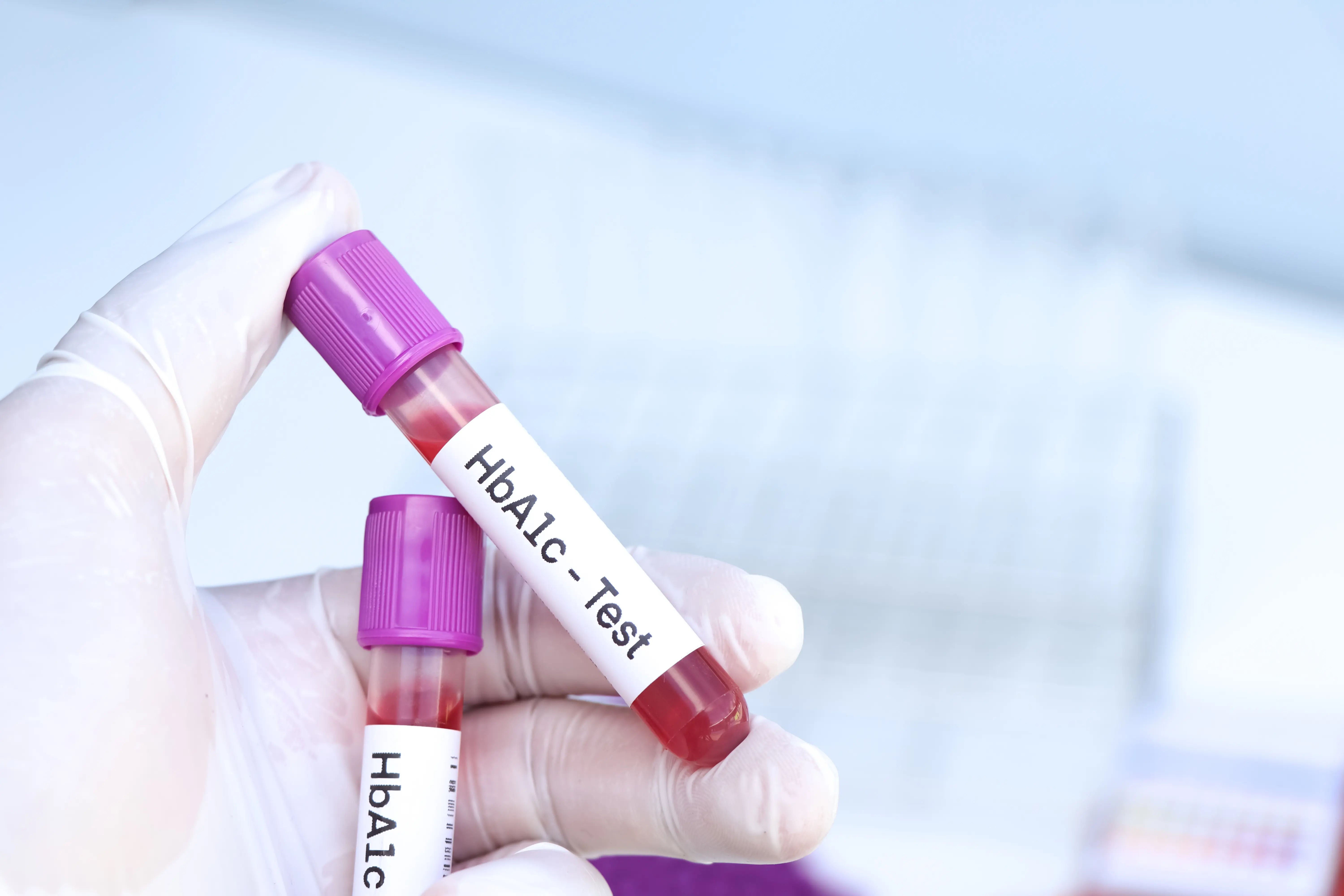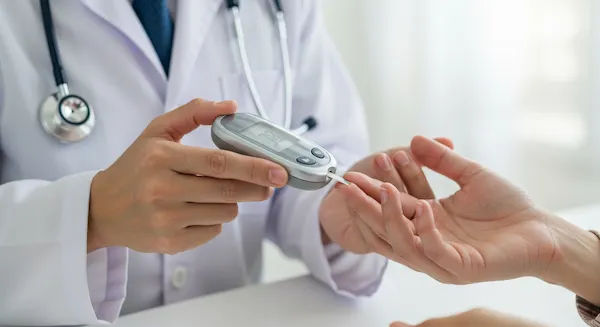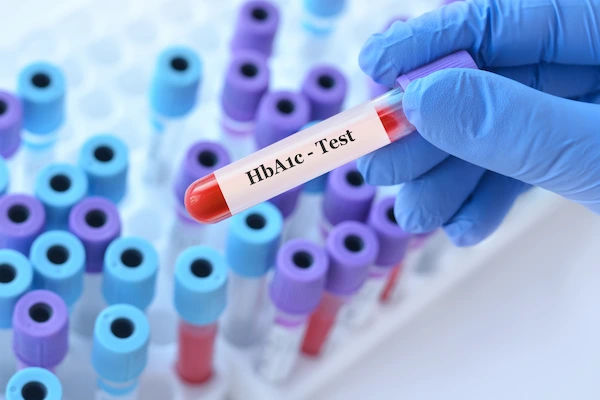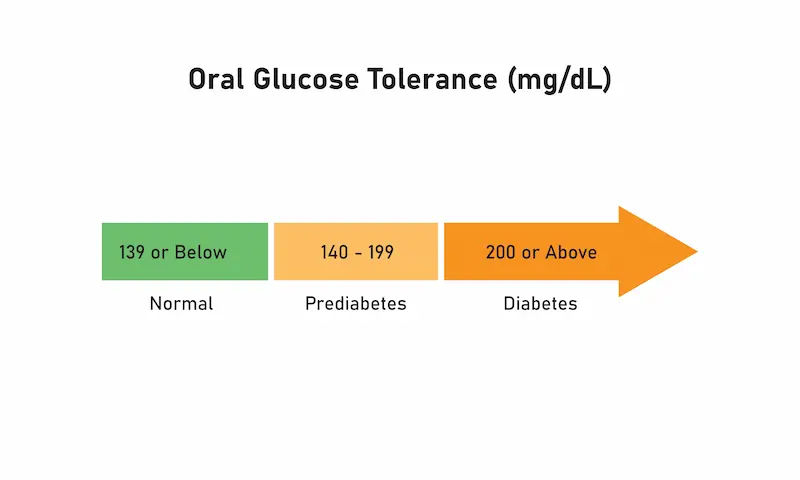Glucose Tolerance Test Procedure and Information
Learn about the Glucose Tolerance Test (GTT), its procedure, purpose, and result interpretation. Understand how it helps diagnose diabetes and other blood sugar disorders.

Written by
Last updated on 29th Aug, 2025

Introduction
If your doctor has recommended a Glucose Tolerance Test (GTT), you might have some questions about what it involves and why it’s needed. Don’t worry; this simple guide will help you understand the procedure, its purpose, and how to prepare for it.
What is a Glucose Tolerance Test?
A Glucose Tolerance Test (GTT) is a blood test that checks how your body processes sugar (glucose). It helps diagnose diabetes, prediabetes, or gestational diabetes (diabetes during pregnancy). The test measures your blood sugar levels before and after drinking a sugary solution to see how well your body handles glucose.
Consult an Endocrinologist for the best advice
Why is the Test Done?
Your doctor may recommend a GTT if:
- You have symptoms of diabetes (like frequent urination, excessive thirst, or unexplained weight loss).
- You have risk factors for diabetes (family history, obesity, or high blood pressure).
- You are pregnant and need screening for gestational diabetes.
- Previous blood sugar tests showed borderline results.
Types of Glucose Tolerance Tests
There are two main types:
1. Oral Glucose Tolerance Test (OGTT) – The most common type where you drink a glucose solution.
2. Intravenous Glucose Tolerance Test (rarely used) – Glucose is given through a vein (only in special cases).
How to Prepare for the Test
To get accurate results, follow these steps before the test:
- Fasting Required: You’ll need to fast (no food or drinks except water) for 8-12 hours before the test.
- Medications: Inform your doctor about any medicines you take, as some can affect results.
- Avoid Strenuous Exercise: Heavy workouts before the test can alter blood sugar levels.
- Stay Relaxed: Stress can impact glucose levels, so try to stay calm.
What Happens During the Test?
Here’s what you can expect during an Oral Glucose Tolerance Test (OGTT):
1. First Blood Sample (Fasting Glucose) – A nurse will take a blood sample to check your fasting blood sugar level.
2. Glucose Drink – You’ll drink a sweet liquid containing 75g of glucose (or 100g for pregnant women).
3. Waiting Period – You’ll wait for 2 hours (sometimes longer for pregnant women) without eating or drinking.
4. Second Blood Sample – After the waiting period, another blood sample is taken to see how your body processed the glucose.
Understanding Your Results
Results are compared to standard ranges:
Normal: Your body processes glucose well.
Prediabetes: Higher than normal levels, indicating a risk of diabetes.
Diabetes: Your body struggles to regulate blood sugar.
For Pregnant Women (Gestational Diabetes):
Fasting: ≥ 92 mg/dL
1-hour: ≥ 180 mg/dL
2-hour: ≥ 153 mg/dL
What If My Results Are Abnormal?
If your results show prediabetes or diabetes, don’t panic. Your doctor will guide you on the next steps, which may include:
- Lifestyle changes (healthy diet, exercise, weight management).
- Medications (if needed).
- Regular monitoring of blood sugar levels.
Tips for Managing Blood Sugar Levels
If you have prediabetes or diabetes, these steps can help:
- Eat a Balanced Diet – Focus on whole grains, vegetables, lean proteins, and healthy fats. Avoid sugary and processed foods.
- Exercise Regularly – Aim for 30 minutes of walking, swimming, or cycling daily.
- Monitor Blood Sugar – Check levels as advised by your doctor.
- Stay Hydrated – Drink plenty of water.
- Manage Stress – Practice relaxation techniques like deep breathing or yoga.
When to See a Doctor?
If you experience:
- Frequent thirst or urination
- Unexplained weight loss
- Extreme fatigue
- Blurred vision
- Consult your doctor immediately. Early detection and management can prevent complications.
Final Thoughts
A Glucose Tolerance Test is a simple yet important way to check how your body handles sugar. If you’re at risk for diabetes, early detection can help you take control of your health. Follow your doctor’s advice, maintain a healthy lifestyle, and stay proactive about your well-being.
Consult an Endocrinologist for the best advice
Consult an Endocrinologist for the best advice

Dr. Nilotpal Mitra
General Physician/ Internal Medicine Specialist
21 Years • MBBS, PGDGM ( Geriatric Medicine), ACMDC (an Advance course in Diabetes and cardiovascular diseases from PHFI and WHF )
Kolkata
MCR SUPER SPECIALITY POLY CLINIC & PATHOLOGY, Kolkata
(25+ Patients)

Dr. Shiva Madan
Endocrinologist
10 Years • MBBS , MD (General medicine) , DM (Endocrinology)
Bikaner
Sushma diabetes and Endocrine center, Bikaner

Dr. Arunava Ghosh
General Physician/ Internal Medicine Specialist
10 Years • MBBS,MD(GENL.MED.),DM(ENDOCRINOLOGY)
Kolkata
VDC Clinic, Kolkata

Dr. Mary Susan K S
General Physician/ Internal Medicine Specialist
13 Years • MBBS, MD INTERNAL MEDICINE
Bengaluru
Apollo Clinic, Sarjapur Road, Bengaluru
(25+ Patients)

Dr. Sushith C
General Physician
2 Years • MBBS
Bengaluru
PRESTIGE SHANTHINIKETAN - SOCIETY CLINIC, Bengaluru
Consult an Endocrinologist for the best advice

Dr. Nilotpal Mitra
General Physician/ Internal Medicine Specialist
21 Years • MBBS, PGDGM ( Geriatric Medicine), ACMDC (an Advance course in Diabetes and cardiovascular diseases from PHFI and WHF )
Kolkata
MCR SUPER SPECIALITY POLY CLINIC & PATHOLOGY, Kolkata
(25+ Patients)

Dr. Shiva Madan
Endocrinologist
10 Years • MBBS , MD (General medicine) , DM (Endocrinology)
Bikaner
Sushma diabetes and Endocrine center, Bikaner

Dr. Arunava Ghosh
General Physician/ Internal Medicine Specialist
10 Years • MBBS,MD(GENL.MED.),DM(ENDOCRINOLOGY)
Kolkata
VDC Clinic, Kolkata

Dr. Mary Susan K S
General Physician/ Internal Medicine Specialist
13 Years • MBBS, MD INTERNAL MEDICINE
Bengaluru
Apollo Clinic, Sarjapur Road, Bengaluru
(25+ Patients)

Dr. Sushith C
General Physician
2 Years • MBBS
Bengaluru
PRESTIGE SHANTHINIKETAN - SOCIETY CLINIC, Bengaluru




